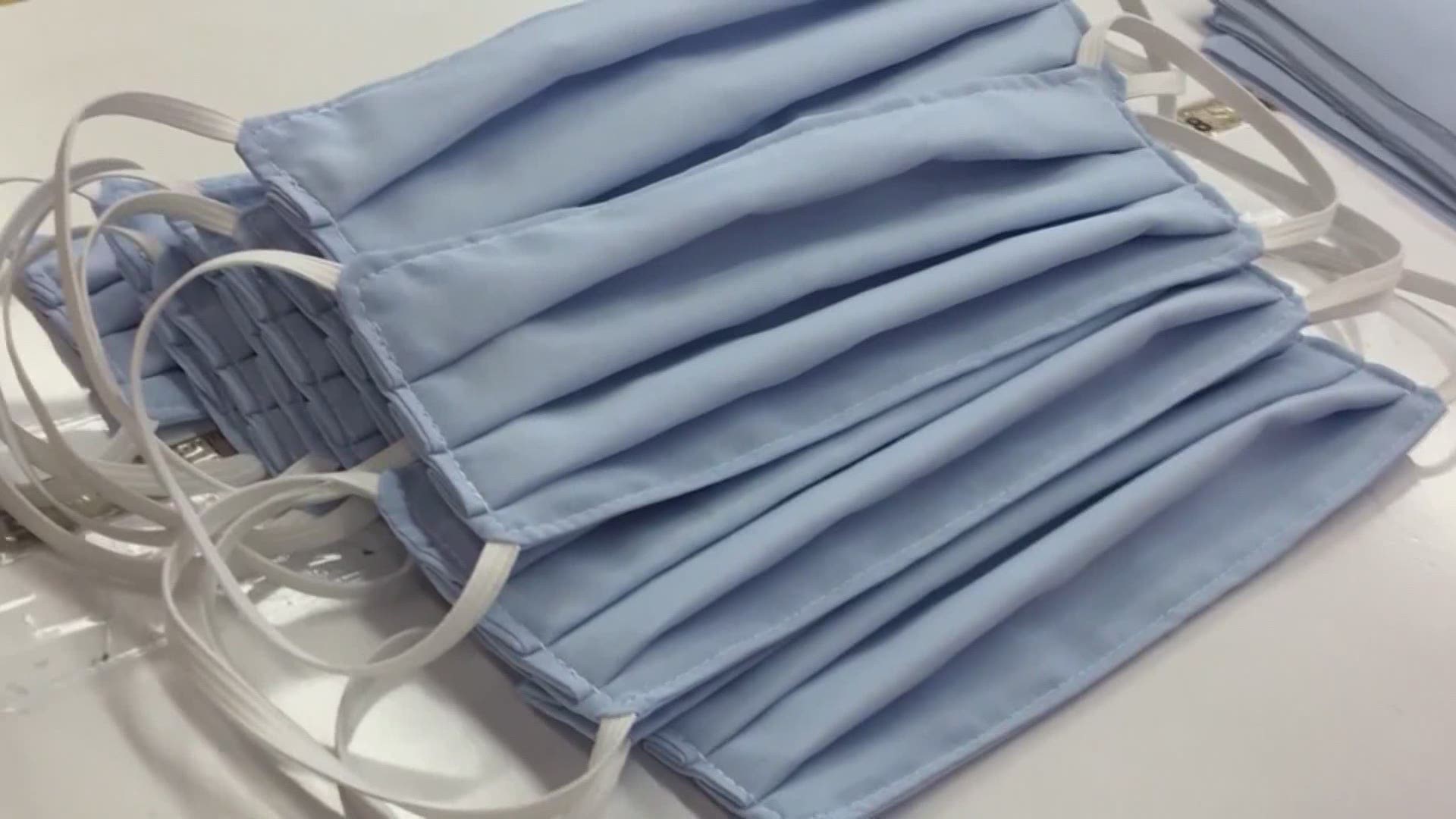MAINE, USA — Maine CDC Director Dr. Nirav Shah said Thursday that contact tracing is the bedrock of public health outbreak investigations. However, he also said one of the most common questions Maine CDC gets is, "How does contact tracing work?"
What is contact tracing?
“Simply put, contact tracing is just talking with folks. It’s simply talking with people to see how they’re doing. Nothing more, nothing less," Dr. Shah said. "It’s you talking with a Maine CDC epidemiologist and the Maine CDC epidemiologist checking in with you.”
Right now, Maine CDC has nearly 100 people who are working on their contact tracing effort. Through contact tracing, Maine CDC is trying to answer two key questions:
- Where did folks get COVID-19 from?
- Who might they have given it to?
Contact tracing is what allows Maine CDC to answer these questions.
Contact tracers will ask you who you were in contact with prior to getting sick, which helps answer the question of where you got COVID-19 from.
Contact tracers will also ask you who you were in contact with after you got sick, which helps answer the question of whom you might have given COVID-19 to.
Maine CDC contact tracers will primarily reach out to you by phone. When they call you, Maine CDC contact tracers will provide their name and they will note their affiliation with Maine CDC. They’ll also provide you with their phone number.
According to Dr. Shah, Maine CDC has also worked with cell phone providers in Maine. So if you see a missed call with a caller ID that reads “Maine CDC,” that’s likely to be a contact tracer.
Is your information confidential?
"These are one hundred percent private conversations. Confidentiality remains of paramount importance, even during a pandemic," Dr. Shah said.
If you test positive for COVID-19 and you provide Maine CDC with a list of every one of your close contacts from the time period when you might have been spreading the disease, Maine CDC going to reach out to those folks. BUT, Maine CDC will not tell any of those people your name.
"If you’re a positive case, your identity - your confidentiality - remains shrouded in secrecy," Dr. Shah said.
Maine CDC uses the information they generate from these conversations and contacts to identify things like outbreaks. So, when a lot of people report that they were at the same gathering at the same time in the same place with the same people, that clues Maine CDC in that there might be something going on.
What will contact tracers ask you?
In addition to helping Maine CDC identify outbreak situations, contact tracers are there to help you. They’ll help you monitor yourself for symptoms and they’ll help you stay safe at home. They’ll also help you get other assistance with everyday things, such as getting food and making sure you have a safe place to stay if you need that assistance.
If you tested positive for COVID-19, a contact tracer will work with you to identify your close contacts, meaning anyone who was within six feet of you for at least fifteen minutes in the days leading up to when you had symptoms.
Maine CDC will ask for their phone numbers, as well as anyone else you tell them about, so they can call them and provide care for them.
Maine CDC will also encourage you to let your contacts know about your illness. However, if you don’t, that’s okay. Maine CDC will call those contacts to let them know they may have been exposed but Maine CDC will not reveal your identity to them.
The contact tracer will discuss any needs that you might have and work to connect you with additional supports if you need them.
To ensure that you have the care that you need and the support to stay safe, a contact tracer is also going to ask you to confirm your date of birth, your address, and other basic information.
If you’re a positive case, they’re going to discuss any symptoms you might have had, whether you were hospitalized, and whether you have any underlying health conditions that might put you at greater risk.
Contact tracers will ask details about your living situation, so they can provide you with information about how to stay safe and avoid infecting other people in your household.
What will contact tracers NOT ask you?
Maine CDC is never going to track your cell phone or GPS location. They don’t have access to it.
If you’re a positive case of COVID-19, your name will never be released to your close contacts.
Contact tracers will never ask you about your immigration status
Contact tracers will never ask you for your social security number.
Contact tracers will never ask you for financial information, such as your bank or your credit card number.
As Dr. Shah said Thursday, in homage to '80s pop singer Rick Astley, "The bottom line here is that Maine CDC contact tracers are never gonna give you up, they’re never gonna let you down, they’re never gonna run around and desert you. Maine CDC contact tracers are never gonna make you cry, they’re never gonna say goodbye, and they’re never gonna tell a lie and hurt you.”

